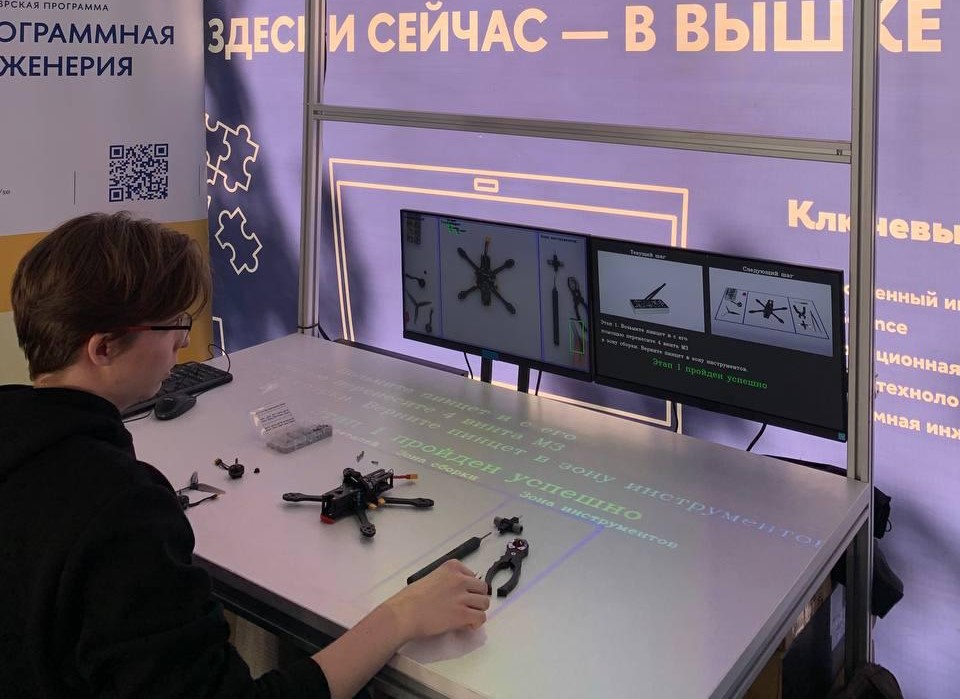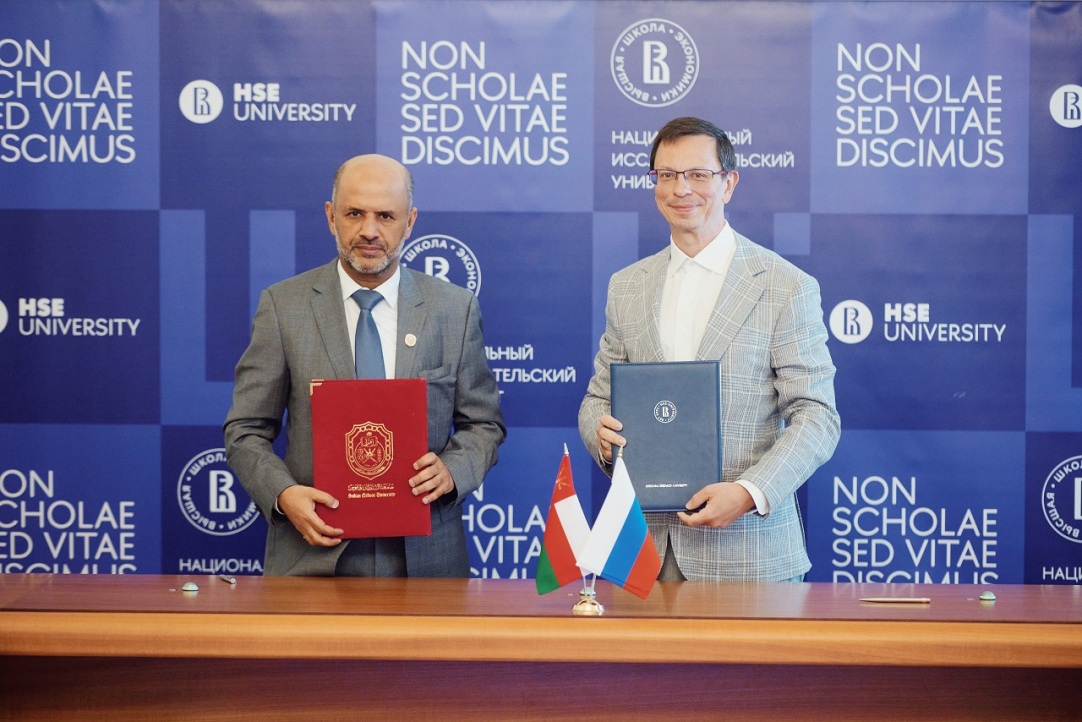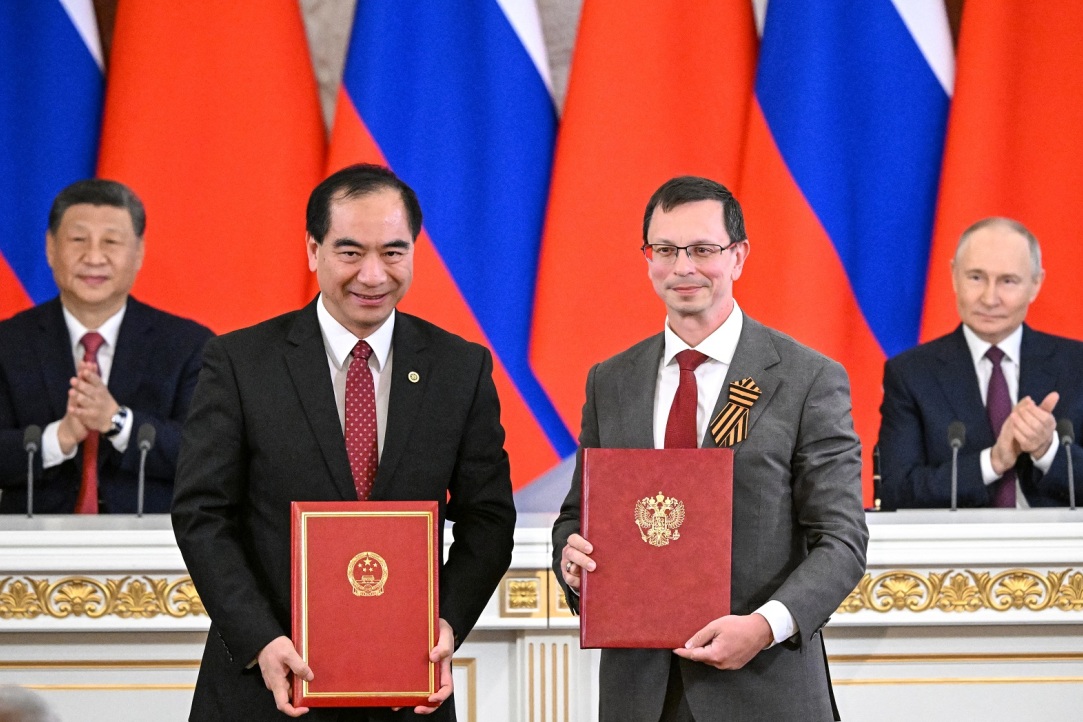
Researchers from HSE University in Perm Teach AI to Analyse Figure Skating
Researchers from HSE University in Perm have developed NeuroSkate, a neural network that identifies the movements of skaters on video and determines the correctness of the elements performed. The algorithm has already demonstrated success with the basic elements, and further development of the model will improve its accuracy in identifying complex jumps.

HSE University Presents Its Developments at the Positive Hack Days Fest
On May 22-24, HSE University presented its developments and degree programmes at the main IT event of the year, the Positive Hack Days International Cyber Fest at Luzhniki. Students and specialists of the Centre for Software Development and Digital Services of the Moscow Institute of Electronics and Mathematics (HSE MIEM), the School of Software Engineering of the Faculty of Computer Science, and the MIEM Workshop for Game Engineering and Interactive Systems together with students from HSE Art and Design School greeted festival guests.

HSE University and Sultan Qaboos University Discuss Cooperation in Science and Education
On May 29, 2025, a delegation from Sultan Qaboos University paid an official visit to HSE University. The meeting was held at the HSE building on Pokrovsky Bulvar and was dedicated to the development of partnership in science and education. The delegation was led by His Highness Dr Fahad Al Said, Vice Chancellor of Sultan Qaboos University. During the visit, the parties signed an agreement on cooperation and academic exchange between the universities.

First Digital Adult Reading Test Available on RuStore
HSE University's Centre for Language and Brain has developed the first standardised tool for assessing Russian reading skills in adults—the LexiMetr-A test. The test is now available digitally on the RuStore platform. This application allows for a quick and effective diagnosis of reading disorders, including dyslexia, in people aged 18 and older.

'The Branch of Medicine That Our Developments Primarily Target Is Cardiology'
The application of mathematical models to the diagnosis and treatment of cardiovascular diseases contributes to the effective detection of patient predispositions and supports the selection of best treatment strategies. The use of mathematical models helps create new diagnostic tools and train neural networks to assist clinicians. Researchers from HSE University and colleagues from Saratov State Medical University are engaged in this work as part of the Mirror Laboratories project. In this interview, Natalya Stankevich, Senior Research Fellow at the International Laboratory of Dynamical Systems and Applications of the HSE Campus in Nizhny Novgorod, talks about what the collaboration has achieved so far.

HSE and Vietnam National University to Establish Joint Research Institute
A cooperation agreement has been signed in Moscow between HSE University and Vietnam National University, Hanoi (VNU). The document was signed during the official visit of a Vietnamese delegation to celebrations marking the 80th anniversary of Victory Day and negotiations involving President of the Russian Federation Vladimir Putin and General Secretary of the Central Committee of the Communist Party of Vietnam Tô Lâm. The agreement was signed by HSE Rector Nikita Anisimov and VNU Rector Le Quan.
HSE and Tsinghua University Strengthen Russia–China Partnership as part of Cross Year of Education
On May 10, a delegation from Tsinghua University—one of China’s leading higher education institutions—paid an official visit to HSE University. The delegation was led by Qiu Yong, Secretary of the CPC Tsinghua University Committee, former President and Chair of the University Council, and member of the Chinese Academy of Sciences.

HSE University Signs Cooperation Agreements with Leading Chinese Universities
On May 8, 2025, in Moscow, in the presence of Russian President Vladimir Putin and Chinese President Xi Jinping, strategic agreements were signed between the HSE University and two of China's top institutions, Peking University and Tsinghua University. The event was attended by Nikita Anisimov, Rector of HSE University, Qiu Yong, Secretary of the CPC Tsinghua University Committee, and Gong Qihuang, President of Peking University. The signing unfolded during the official visit of the Chinese delegation to Russia, coinciding with the commemoration of the 80th Anniversary of Victory Day.

‘Services Must Be Flexible’: How Governments Can Use Artificial Intelligence
The HSE International Laboratory for Digital Transformation in Public Administration held a roundtable titled ‘Artificial Intelligence in Public Administration: Current Trends.’ Scholars from Israel, China, and Russia discussed which public services AI can enhance and what key factors must be considered when adopting new technologies.

HSE Develops Its Own MLOps Platform
HSE researchers have developed an MLOps platform called SmartMLOps. It has been created for artificial intelligence researchers who wish to transform their invention into a fully-fledged service. In the future, the platform may host AI assistants to simplify educational processes, provide medical support, offer consultations, and solve a wide range of other tasks. Creators of AI technologies will be able to obtain a ready-to-use service within just a few hours. Utilising HSE’s supercomputer, the service can be launched in just a few clicks.
